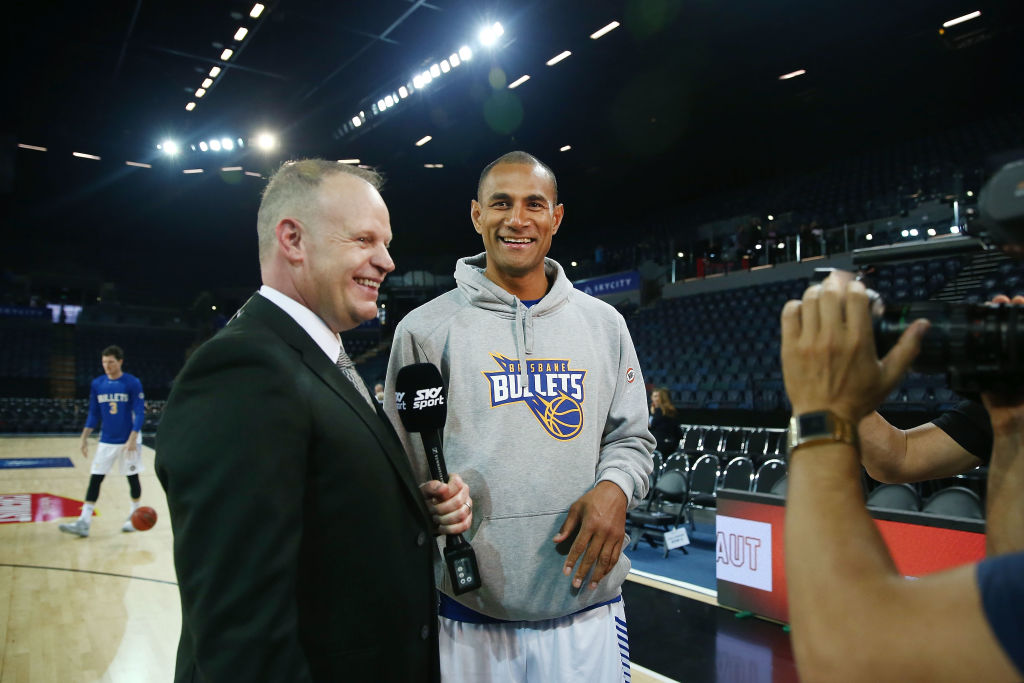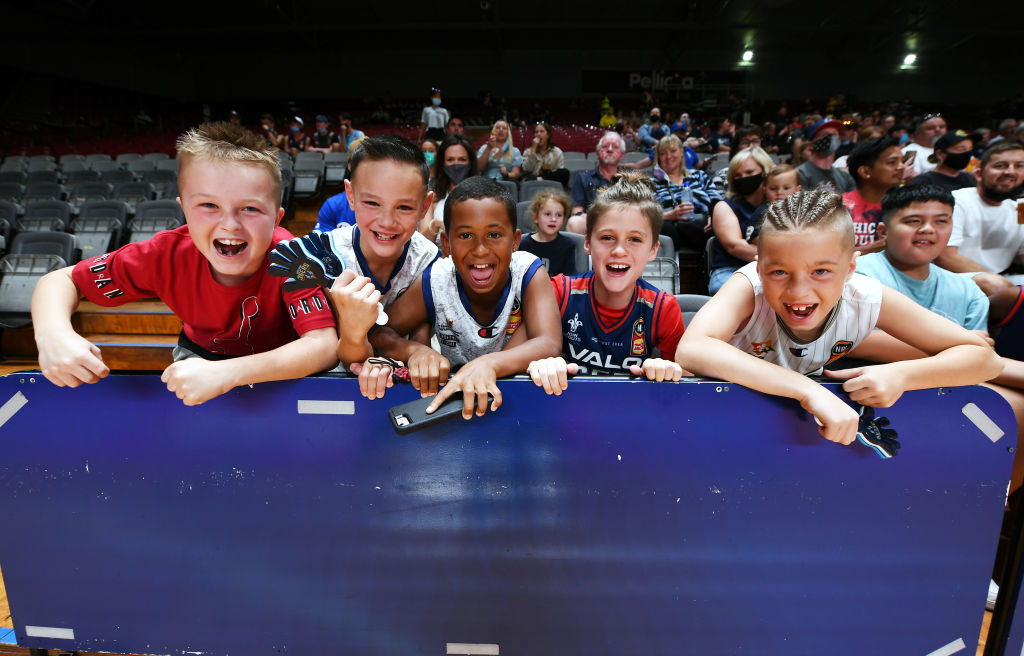Plus
You are not permitted to download, save or email this image. Visit image gallery to purchase the image.

A lot has happened in New Zealand basketball since the Tall Blacks shocked the world in Indianapolis in 2002. Someone who has been there every step of the way is commentator Andrew Mulligan, formerly of Dunedin. He tells Jeff Cheshire, as our series continues, how the country’s top professional team has helped the sport boom.
Progress did not come immediately. The Tall Blacks went from no-names to recognisable figures in 2002, and Rebel Sport sold out of basketballs.
But the real basketball boom was a decade away.
Professional hoops had arrived in the form of the New Zealand Breakers a year after the Miracle of Indy.
They began capturing the public’s consciousness 10 years later, as they embarked on a run of four Australian NBL titles in five years from 2011.
It was about the same time that the NBA became regularly accessible on social media and television.
Likewise, Kiwi superstar Steven Adams was drafted by the Oklahoma City Thunder in 2013.
That was the point when Sky Sport commentator Andrew Mulligan feels the real rise began.
“I think we all thought, as basketball fans, it was going to be instant and we were going to capitalise off ’02,” he said.
“In a way, we have. It’s just taken 20 years to get there, to start seeing some of the results.
“You look at all these junior teams performing well, all these great players who are now in the NBL. You’ve got kids in college who are coming back, or going to Europe, or coming back and playing in the Aussie NBL.
“Those players in their 20s were born around the time of the 2002 world champs.”
Mulligan began commentating on the sport when New Zealand hosted the 2009 under-19 world championships.
A year later, Sky reclaimed the rights to the Breakers and Australian NBL, and he took his spot as regular Breakers commentator, which he retains today.

Before that, the games had been played delayed on Maori Television.
Over time, the prominence of the team has been reflected in its following and the coverage it has received.
Winning certainly helped, and Mulligan said former majority owners Paul and Liz Blackwell did a great job fostering a great culture and putting together a winning team.
It had basketball on the “tip of people’s tongues”.
But the league itself was struggling, and it set about moving in a direction that would attract both the media and the fans.
“When they beat the Cairns Taipans in 2011, it was an absolute grind-fest.
“There were scores in the 60s. The league wasn’t a TVfriendly product. The emotion and relief of winning the title was great for the Breakers and Sky.
“But the product was broken, the league was broken. It wasn’t great.
“A lot of credit goes to Larry Kesselman in Melbourne, who’s poured a lot of money into the NBL.
“But he’s also made it a product — a lot of people will argue whether it’s top five or top 10. But it’s definitely top 10 in leagues around the world, and I’d argue it’s top five.
“It’s become a better league. They’ve tweaked the rules, like the NBA tweaked the rules, to make it more offensive-minded. It’s brighter lights, bigger stage, better products. That’s what captures people’s attention.
“The Breakers, when they play, they have to win — they know that. They have to win because that’s what gets people talking about them.
“People come in to Spark Arena and it’s a great show. It literally is a show. It’s NBA-like entertainment. People come along and go, ‘that was a pretty cool two-hour package. I had a lot of fun there’,” Mulligan said.
That has not gone down well with everyone.
A new ownership and coaching group has not endeared itself to the franchise’s longtime fans.
However, it has taken the Breakers in the same direction the league has headed.
Mulligan said he felt that while the Blackwells had done a fantastic job, they were also pouring a lot of their own money into the Breakers — only once returning a profit.
That became a drain and, when they decided they could not continue, the country was lucky somebody wanted to buy the franchise, he said.
However, that new consortium — headed by American Matt Walsh — came with a business approach.
“I think [the longtime fans] found that quite hard to deal with,” Mulligan said.
“There’s a lot of traditional values associated with the Breakers that’s born out of the North Shore basketball scene. I’m only speculating here. I don’t know this for a fact.
“They felt like they owned a bit of the Breakers. They play on the Shore, they train on the Shore, they’ve got a home base on the Shore, which is a great basketball hotbed.
“But this ownership group is a business. Some people get upset that they bring in these Next Stars.
“R.J. Hampton starts. It’s not a great basketball decision, because it didn’t pan out. But at the time it’s the best business decision the Breakers had to make.
“Because you’re not making a lot of money out of the Breakers.”
The Next Star programme ushered in a new era and connected the team to New Zealand’s increasingly large NBA fanbase.
Mulligan said the day Hampton faced LaMelo Ball at Spark Arena was a “charged” atmosphere, different from any he had experienced.
The make-up of the crowd was different, too — children and teenagers had come to watch two players who were touted as the next big thing.
Perhaps that showed the growth.
Mulligan commented on that 2009 under-19 world championships, which had players such as Klay Thompson and Gordon Hayward present.
It was played in largely empty arenas — which he said would have been packed with teenagers if that was to happen now.
The sport had become far more accessible to that generation, particularly thanks to the NBA and American scene, which had caused interest to boom.
Alongside social media and the ease of access to now watch any NBA game, both fantasy NBA and the NBA2Kvideo game had been integral to that.
Even locally, in May and June there were NBL games outrating Super Rugby games on Sky Sport, Mulligan said.
Perhaps that showed a shift in the sporting interest of New Zealand’s youth, all these years after the miracle of Indy.
“There’s so many different ways that basketball can get into your eyeballs and capture your imagination and attention.
“Maybe this is recency bias, but I see more Steph Curry singlets and Breakers singlets and basketball merch on kids at my 8-year-old kid’s school than I do All Blacks and Super Rugby gear.
“I think that’s a real problem for rugby in this country, I really do.”

